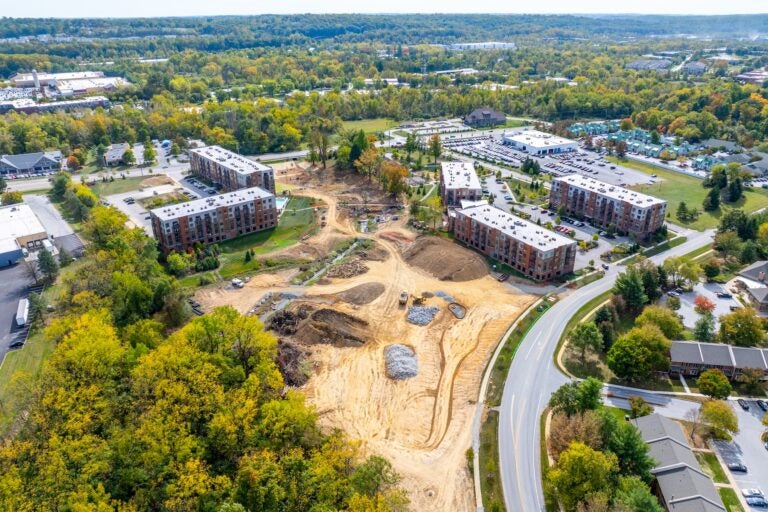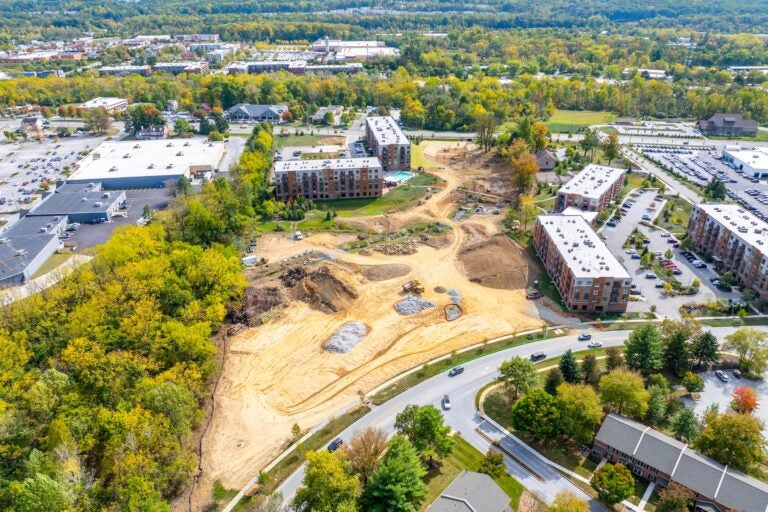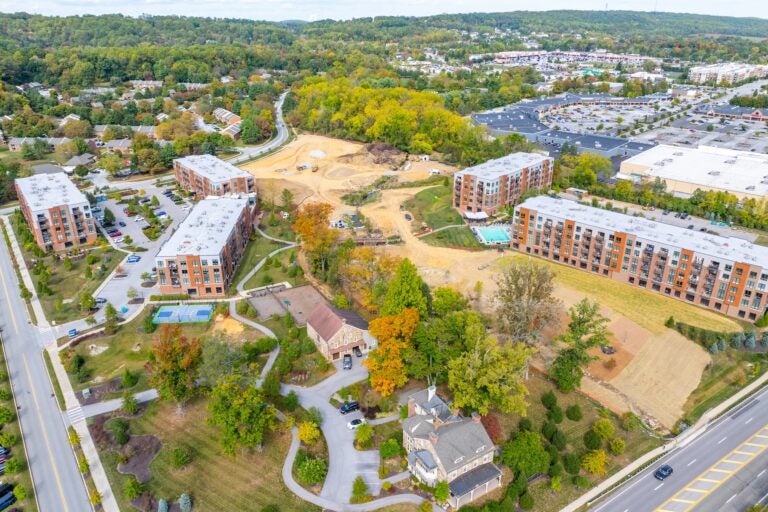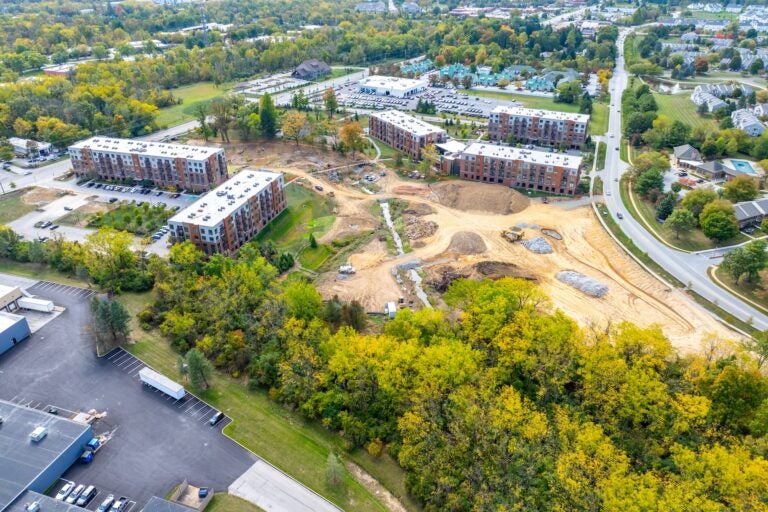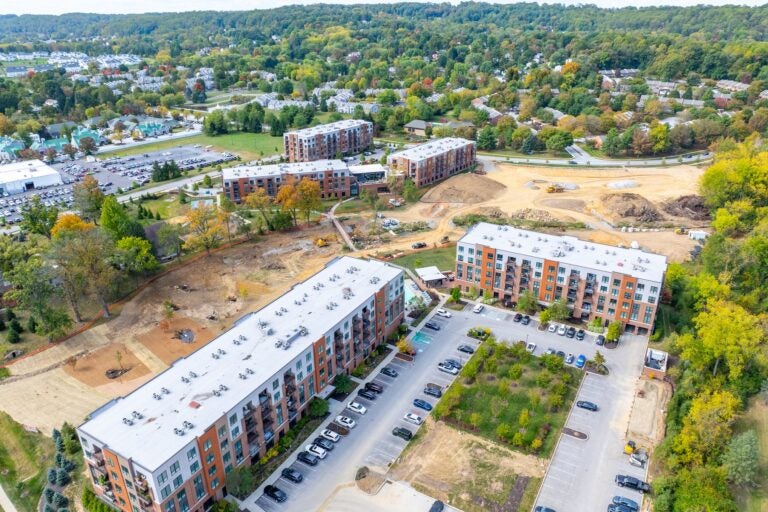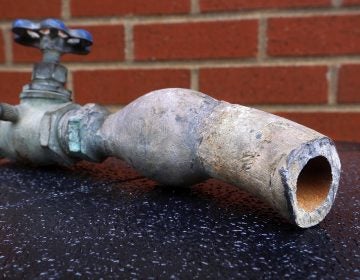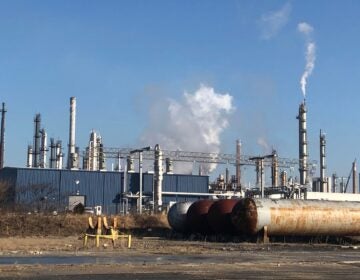Real estate developer aims to control flooding and erosion in Exton
Hankin Group aims to restore the floodplain along the Lionville Run in Exton, Chester County.
Listen 1:20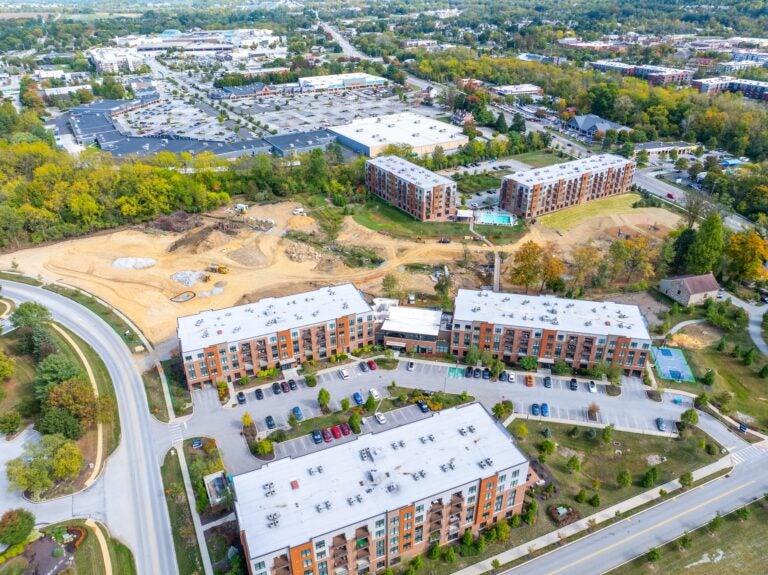
Hankin Group has begun construction on a project to restore the floodplain along the Lionville Run in Exton, Chester County. (Courtesy of Hankin Group)
From Philly and the Pa. suburbs to South Jersey and Delaware, what would you like WHYY News to cover? Let us know!
As the suburbs surrounding Philadelphia become more developed with apartments and retail, neighborhoods are more likely to experience the effects of flooding and stormwater runoff. The threat of climate change is expected to exacerbate the problem, as more intense rainfall is projected in the region.
But a real estate development company says it’s possible to help communities become more resilient to the effects of development and climate change, while increasing residential opportunities.
Hankin Group plans to restore the floodplain along the Lionville Run in Exton, Chester County. The stream cuts across Keva Flats, the developer’s 19-acre luxury apartment community off Route 30.
The stream’s channel has eroded over time, and is prone to flooding. So, Hankin Group has set aside $2.4 million to widen and flatten the channel, and plant native trees and shrubbery to slow down and restore water flow and control sedimentation.
“You can achieve biodiversity, you lower the floodplain elevation, you remove sediment out of the stream channel and you’re able to use it for stormwater management for future development,” said Neal Fisher, vice president of development at Hankin Group.
The project also involves the expansion of Keva Flats, located within the West Whiteland Town Center, with an additional 96 units.
As Exton becomes more developed with apartment complexes, retail and larger parking lots, the area faces increased stormwater runoff and flooding. That’s because water moves faster over paved surfaces than vegetated areas, said Virginia Smith, professor of civil and environmental engineering at Villanova University.
As water flow in rivers and streams speeds up during storms, and runoff from paved surfaces enters waterways, sediment from stream channels also erodes, Smith said.
Smith said mitigation projects that capture large volumes of water and restore watersheds to their natural states will become more crucial with increased development, and worsened storm events associated with climate change.
“You have to have somewhere for that water to go, and when you don’t, it’ll continue to degrade streams. You might see slope failures. You can also see the floodplains becoming more and more expansive,” Smith said. “There’s also concerns with our natural habitats about what pollutants are moving downstream and what areas of the streams are able to host different types of species and healthy ecosystems.”

Though the area doesn’t have a long history of severe flooding, residents have been impacted by heavy rain more recently, said John Weller, West Whiteland Township’s director of planning and zoning.
“People are a little taken aback by the flooding that they’ve seen,” he said. “Even though it tends to be a short duration, once you have water in your basement, it’s there. It doesn’t matter how briefly it’s there.”
Weller said he hopes more developers will consider taking on projects that make the area more resilient to climate change.
“The benefit that we were looking for is to have a community that is more flood resilient, that can endure more intense rain events with zero damage to property and certainly no loss of life,” Weller said. “We recognize that our land needs to work this way in order for all of us to enjoy a high quality of life.”

Get daily updates from WHYY News!
WHYY is your source for fact-based, in-depth journalism and information. As a nonprofit organization, we rely on financial support from readers like you. Please give today.



